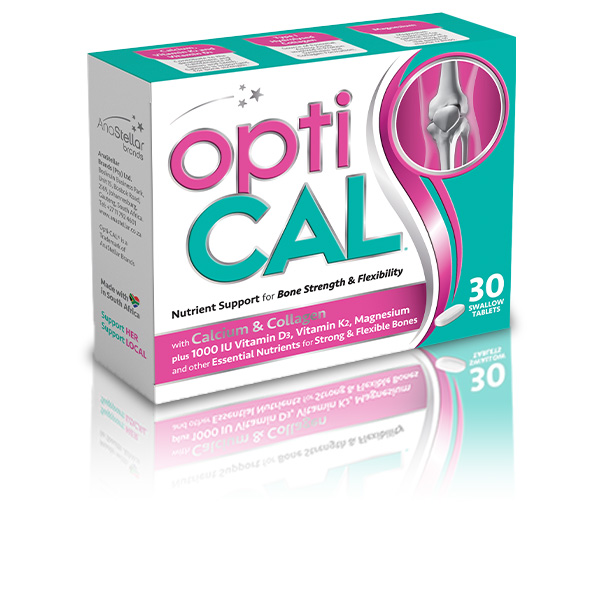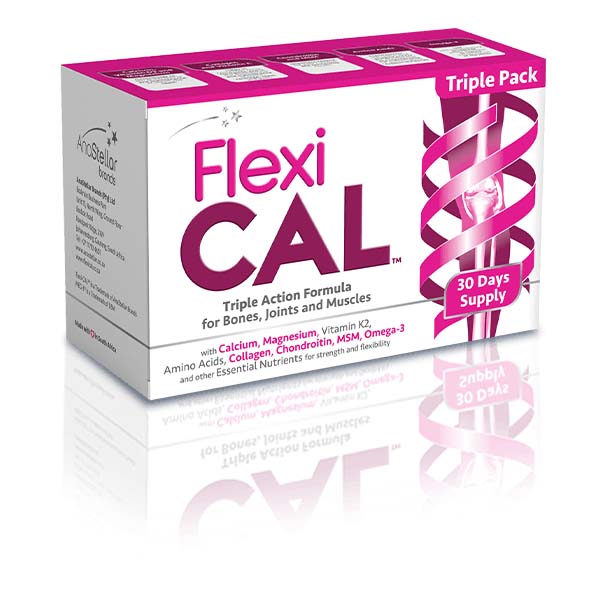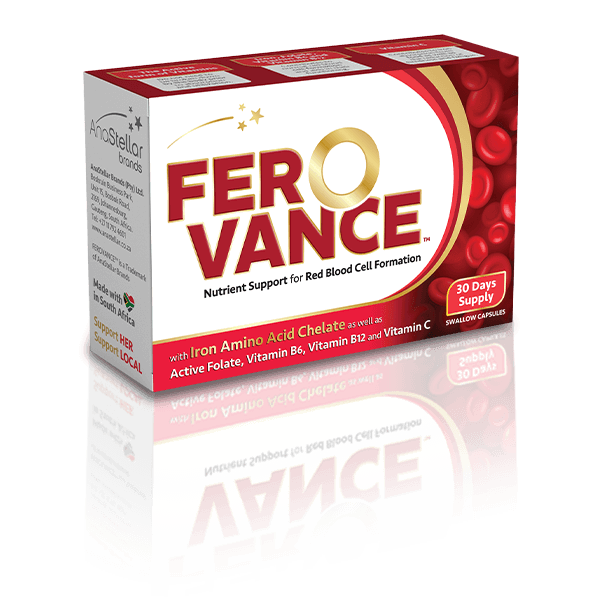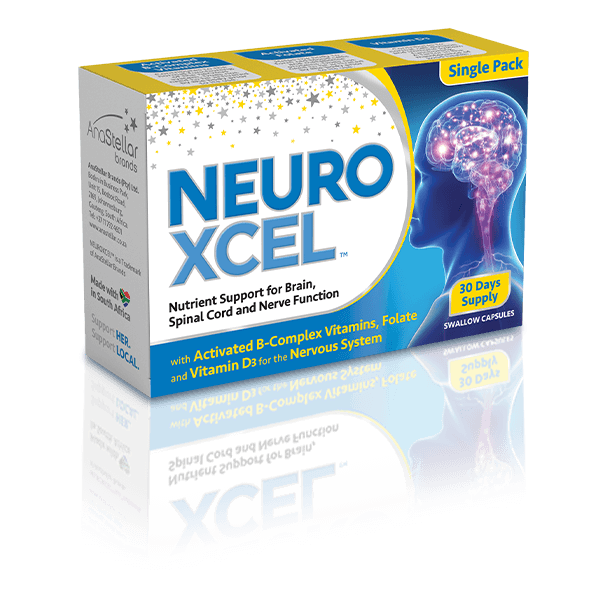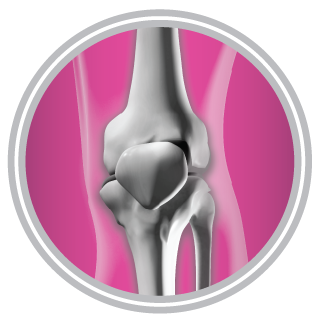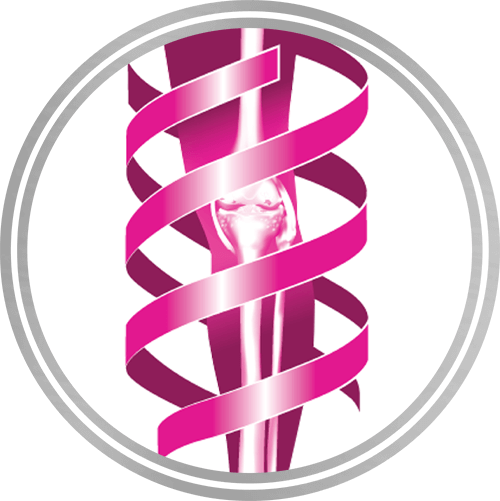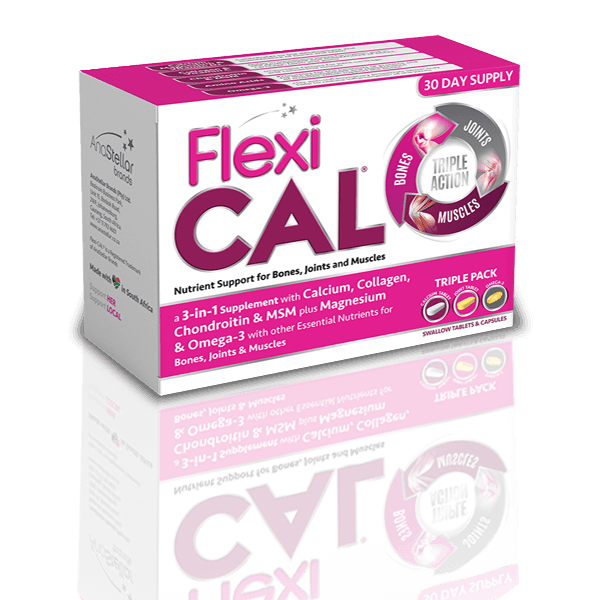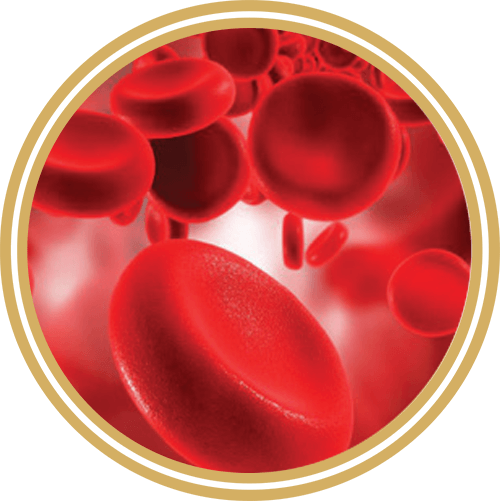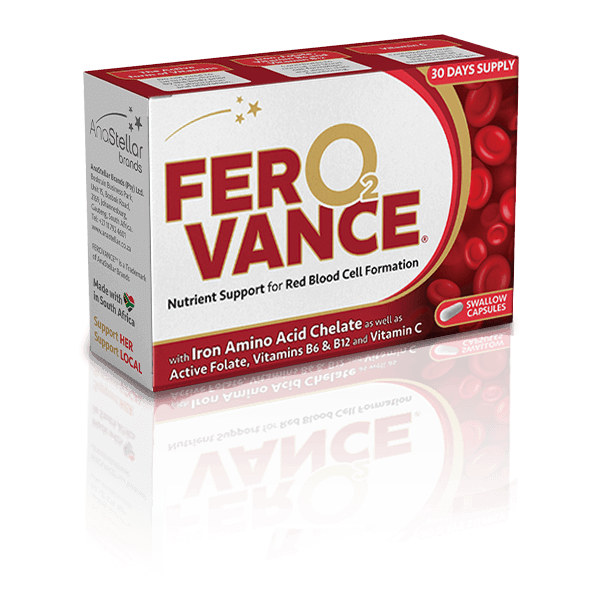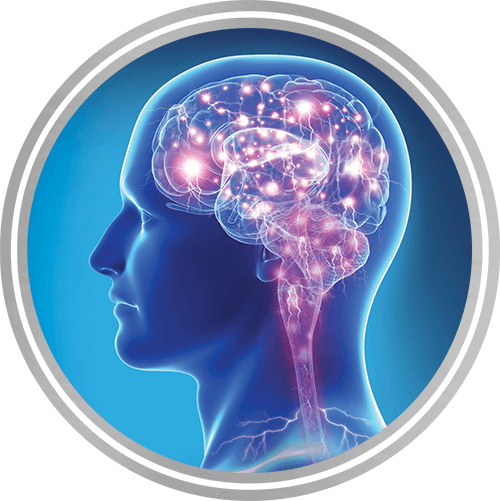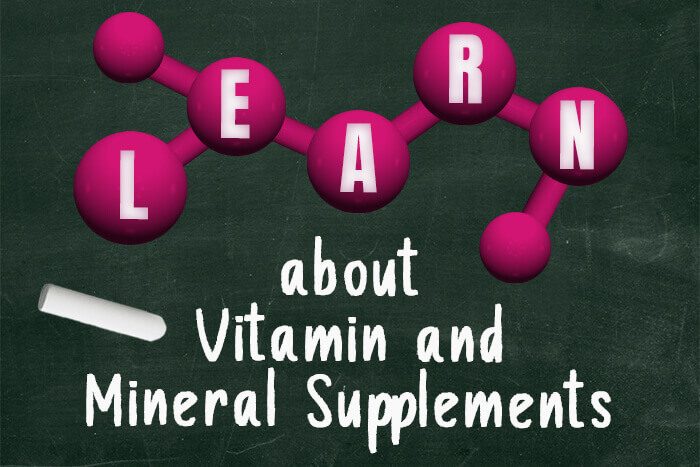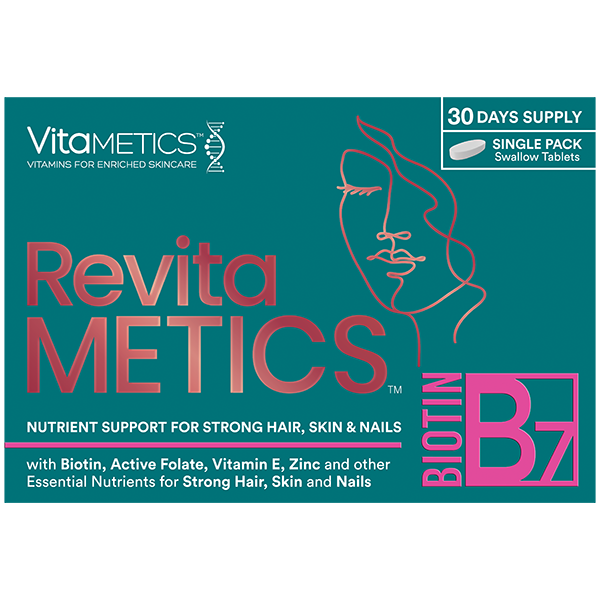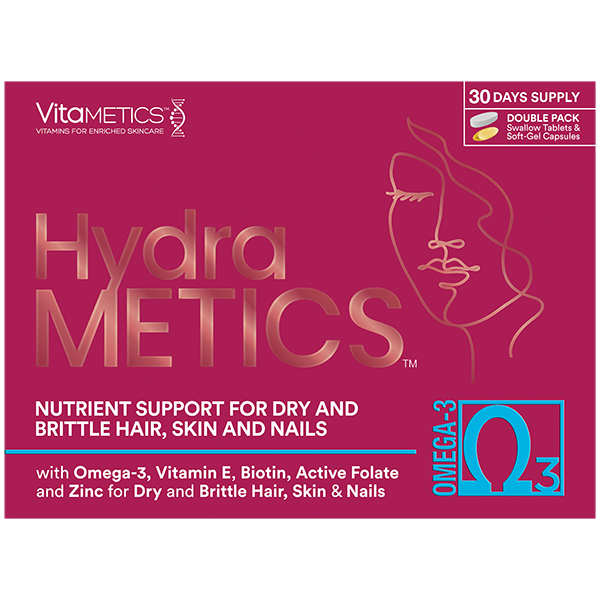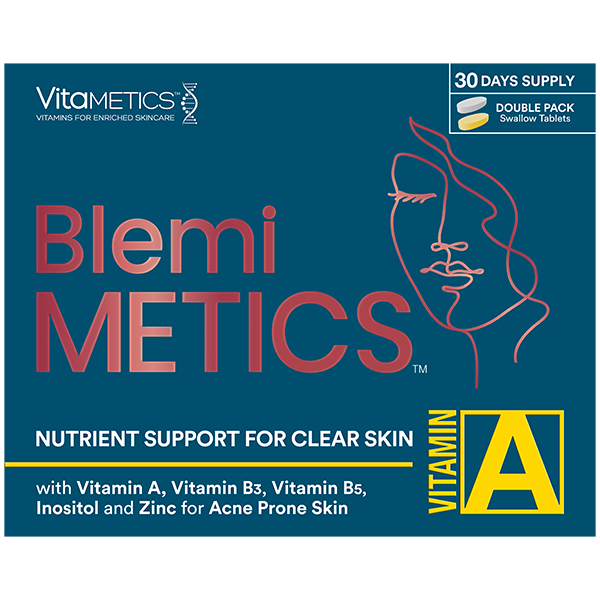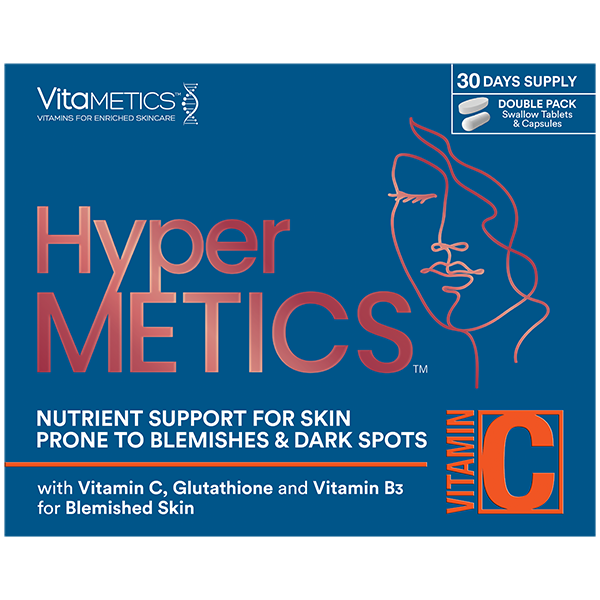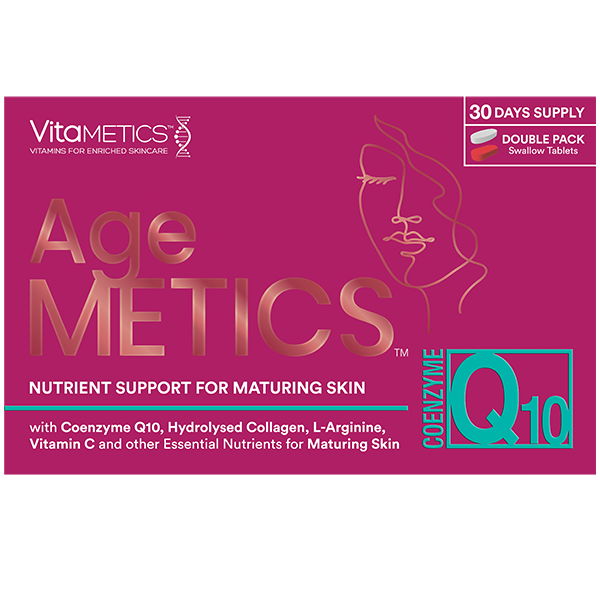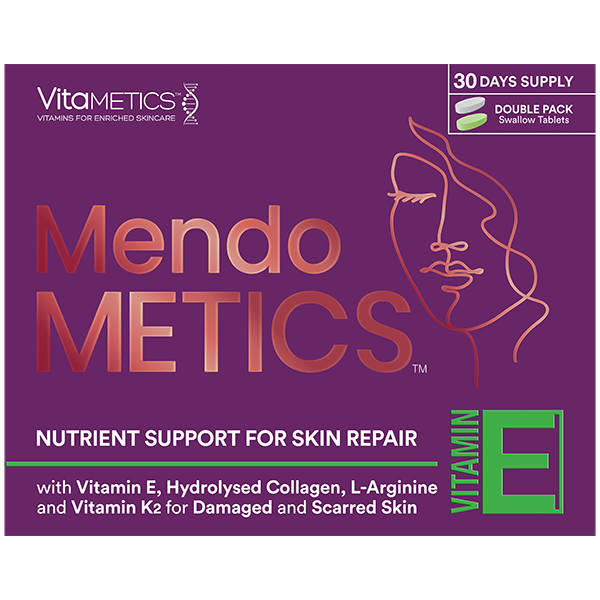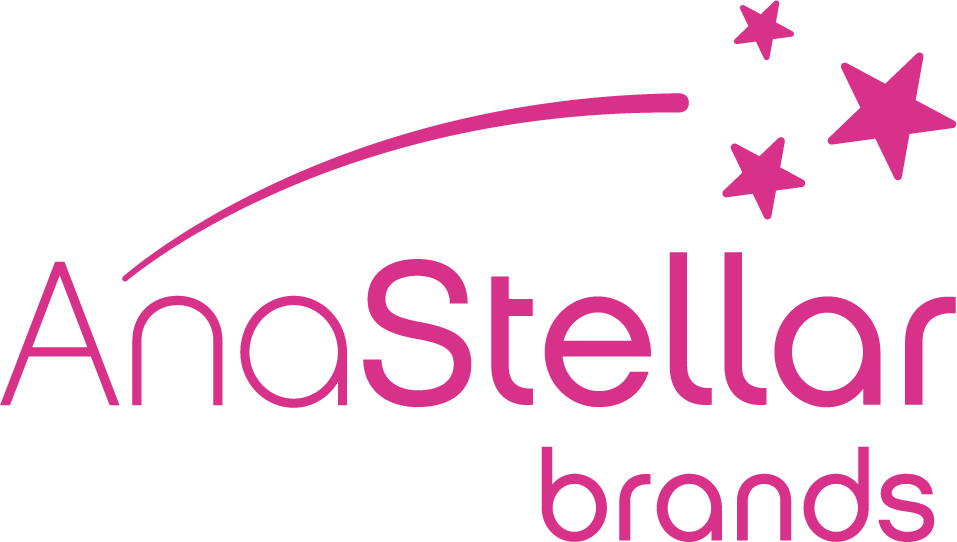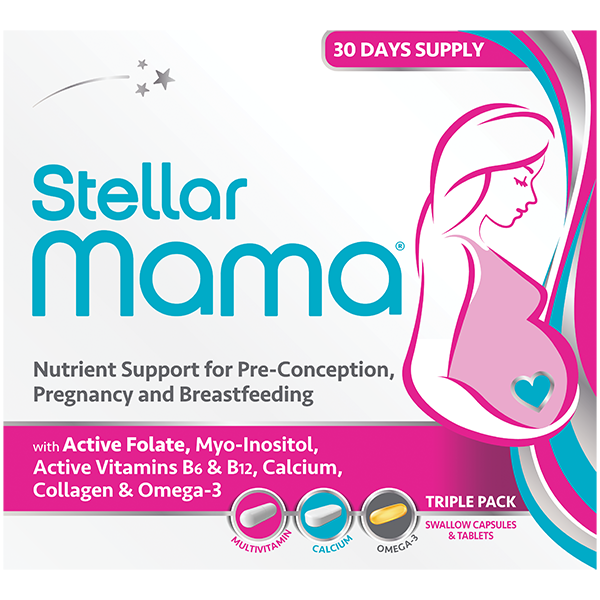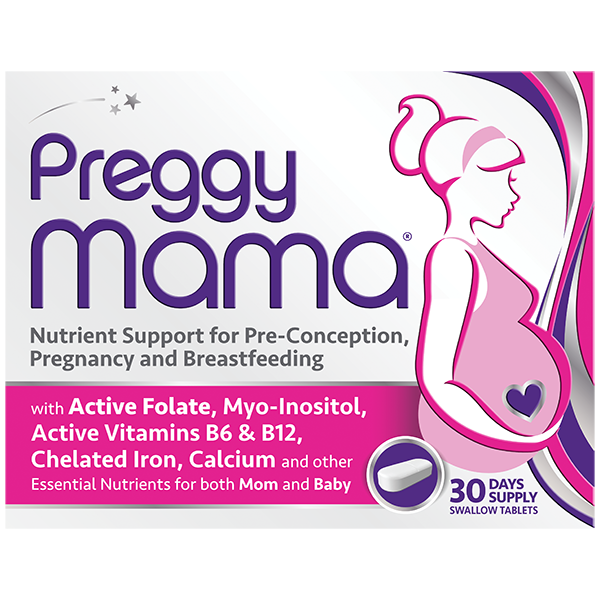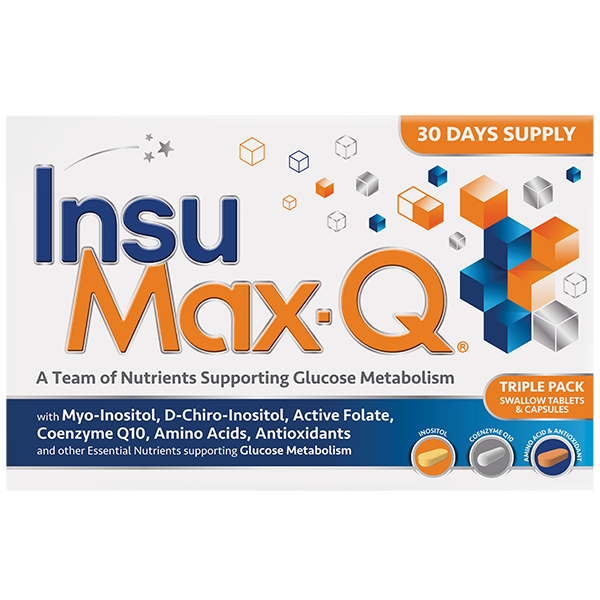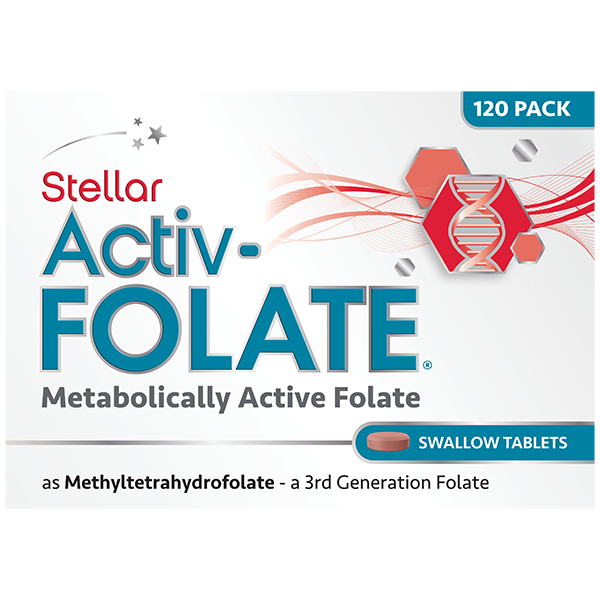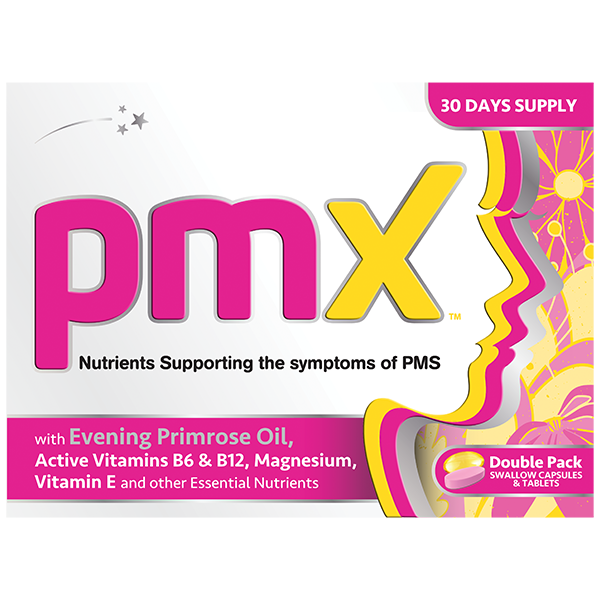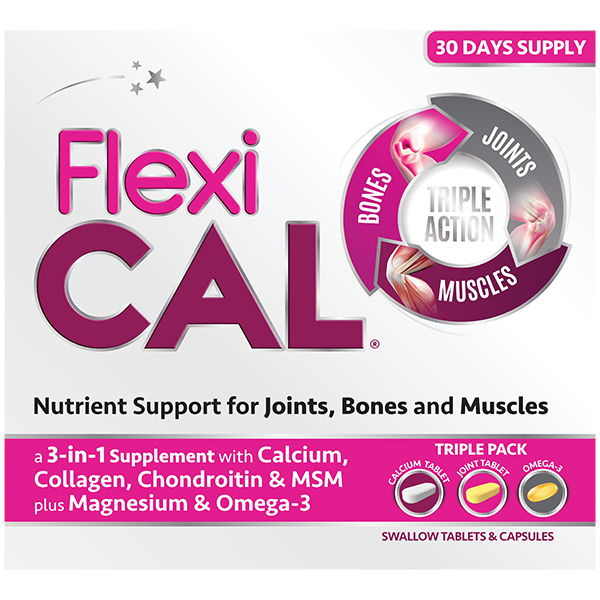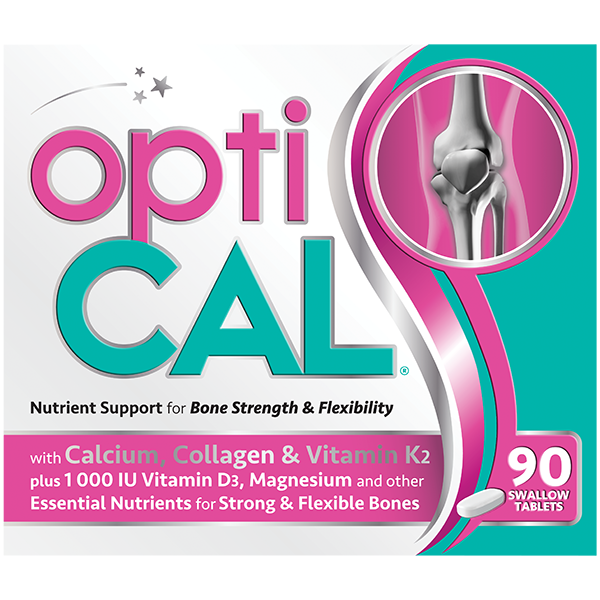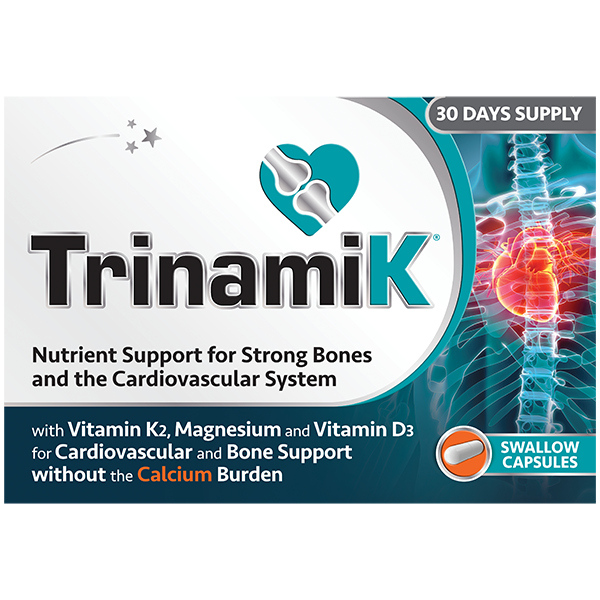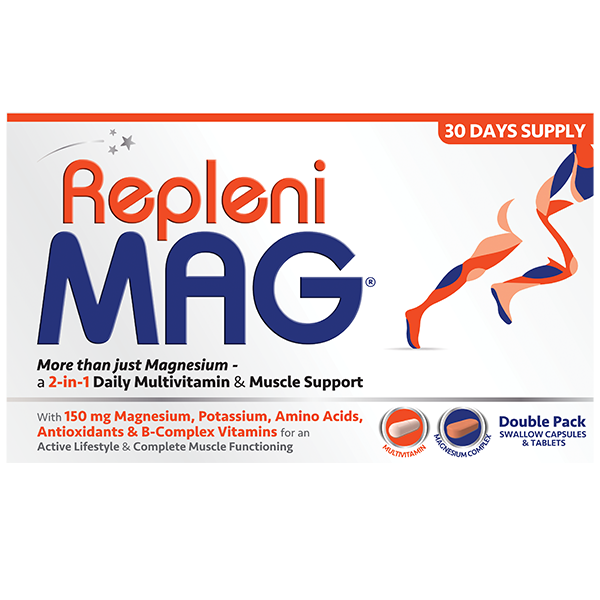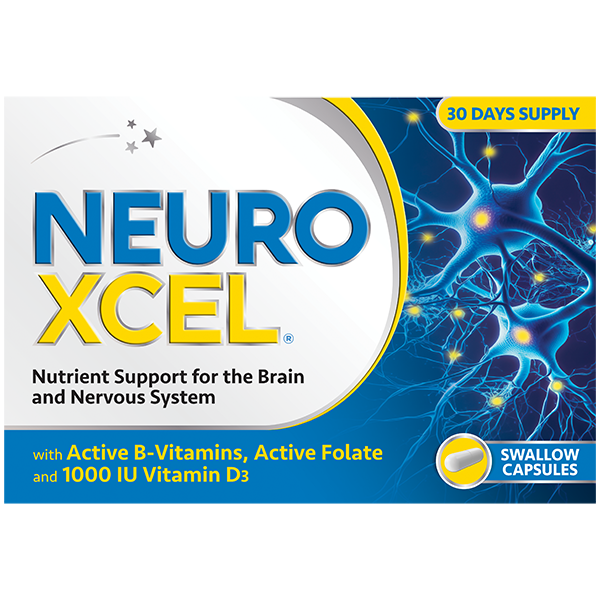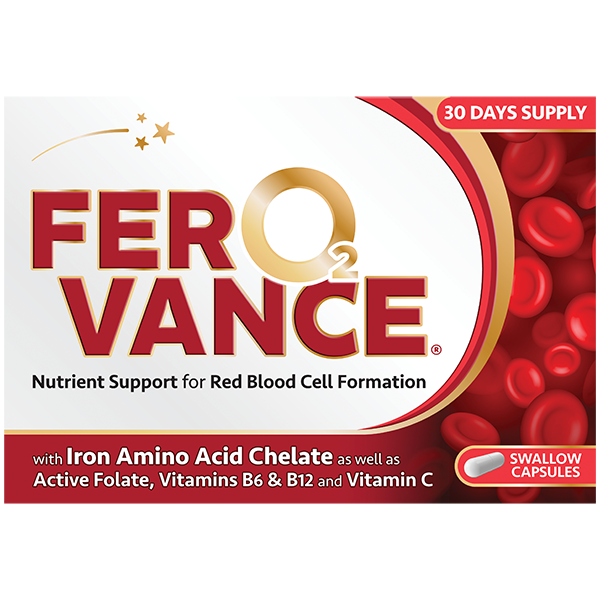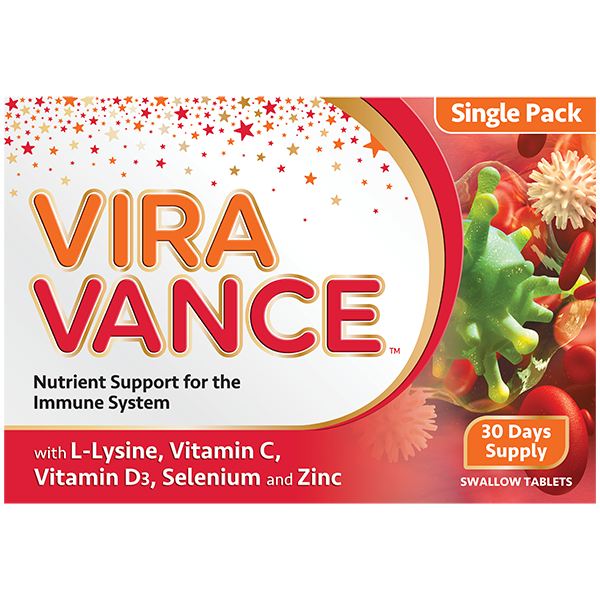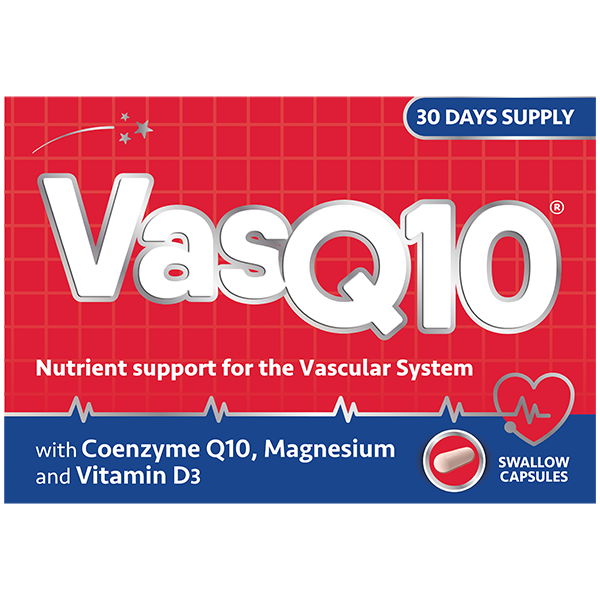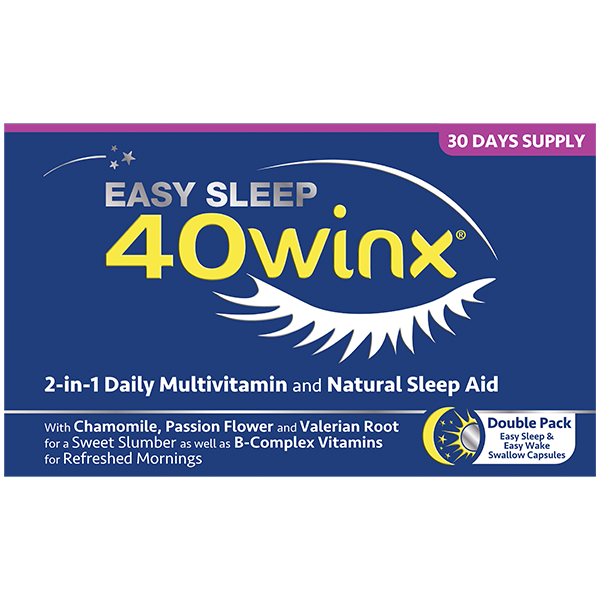FREE SHIPPING FOR ORDERS R500 OR MORE
FREE SHIPPING FOR ORDERS R500 OR MORE
Vitamins for
the Elderly

Home | Product Ranges | Vitamins for the Elderly
Vitamins for the Elderly
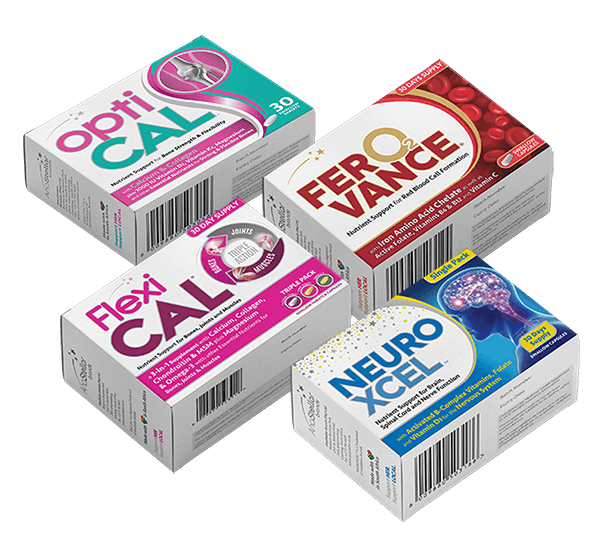
With age, the bones in our bodies may shrink in size and density, making them weaker and more susceptible to fracture. You might even become a bit shorter in height! Our muscles as we get older can also lose strength, endurance, and flexibility. All these physical changes can affect our coordination, stability, and balance.
Bone and joint health become more important as we grow older. Untreated bone and joint conditions can lead to chronic pain and disability. Vitamins, minerals, and other health supplements can play a vital role in keeping bones and joints healthy. The consumption of vitamins and minerals can also be integrated into a holistic General Health Plan which may include:
- A healthy Balanced Diet
- A Fitness Programme (Including Cardio and Strength Training)
- Regular Health Check-Ups with your Healthcare Provider
- Physical Therapy (If you have an injury or chronic conditions causing bone and joint problems)

Opti-CAL
Calcium is one of the most important minerals for bone health and strength. Diet is the best way to get Calcium, but Calcium Supplements are a convenient option if your diet falls short. Calcium absorption is aided by other minerals and vitamins like Vitamin D and Vitamin K2.
Vitamin D helps your body absorb calcium. Vitamin D deficiencies can also lead to bone loss.
Vitamin K2 helps deliver calcium to the bone. Vitamin K2 deficiency can lead to low bone density and increase your risk of a fracture. There are two types of Vitamin K. Vitamin K1 can cause problems for patients on blood thinners (Warfarin) so you should discuss it with your doctor before starting.
Magnesium helps your body use Vitamin D and Calcium. Magnesium deficiencies may contribute to osteoporosis. Adequate magnesium levels can reduce the risk of fractures and promote healing.
Collagen is an essential protein that plays a role in everything from skin structure to blood clotting to bone health. Hydrolysed collagen can boost bone density and assist in osteoporosis.
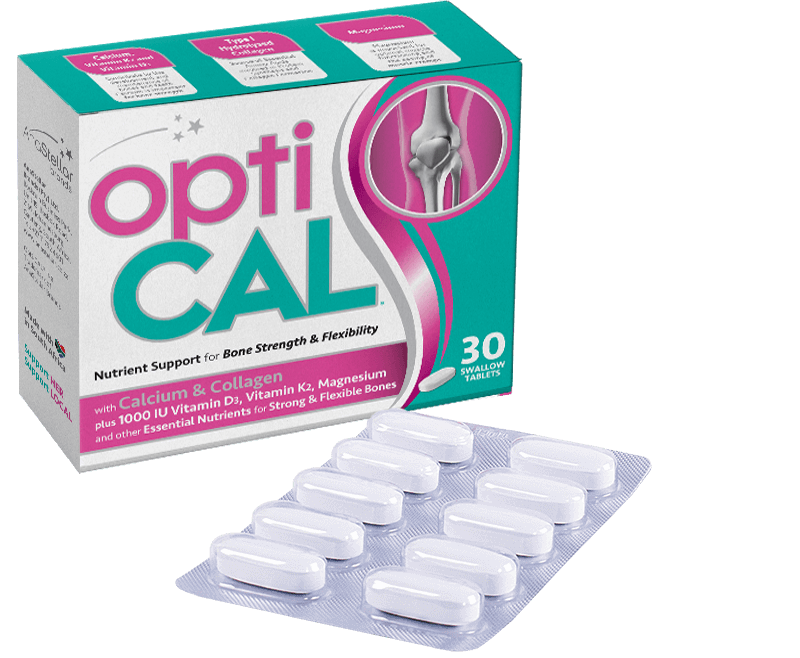
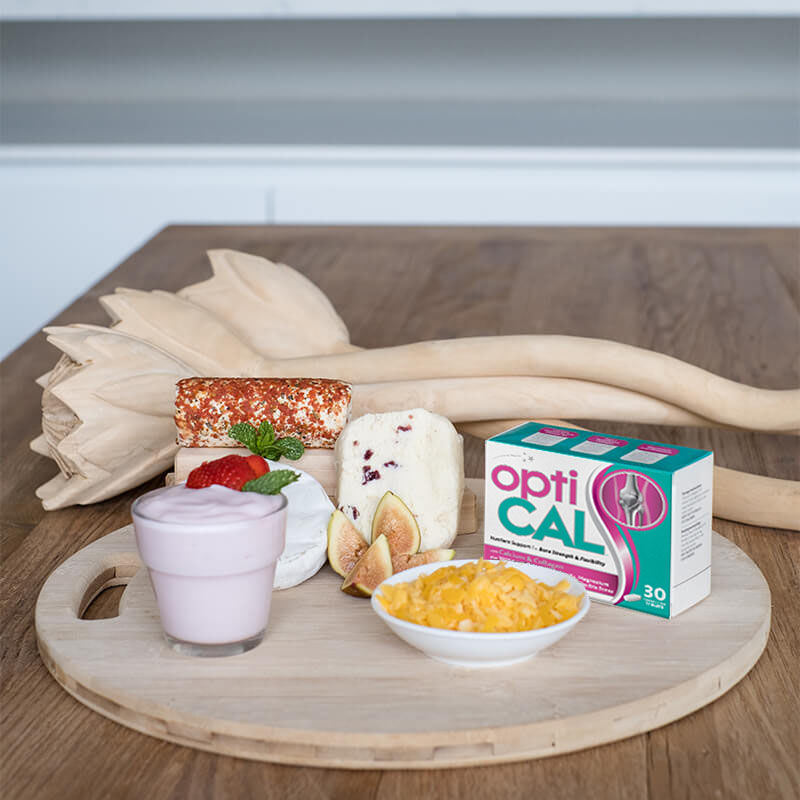
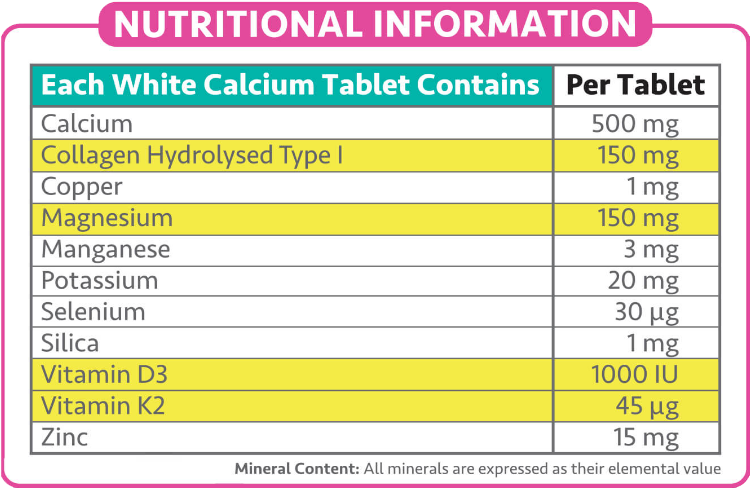
Flexi-CAL
Nutrients for the elderly to consider for optimal Joint Health are:
- Omega 3
- Chondroitin
- MSM (Methylsulfonylmethane)
Omega 3 has anti-inflammatory properties that are useful in easing painful joints. Look for fish oil supplements that contain both DHA and EPA.
Chondroitin is a natural component of the tissue that makes up cartilage, which cushions our joints. Chondroitin may help the body maintain fluid and flexibility in the joints and assist in joint pain.
MSM is used to reduce inflammation and helps support muscles and tendons in the body.
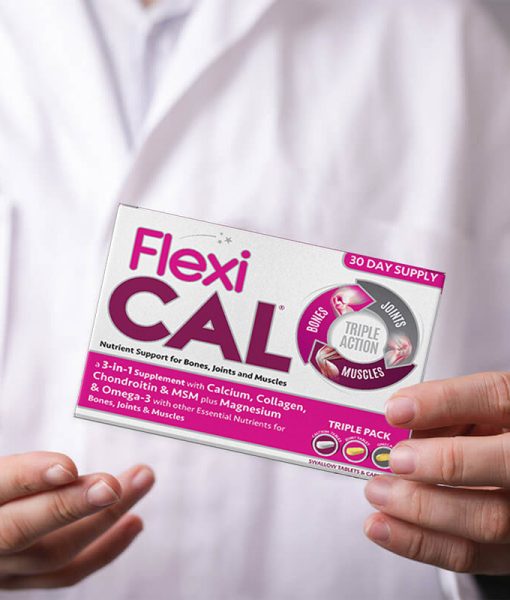
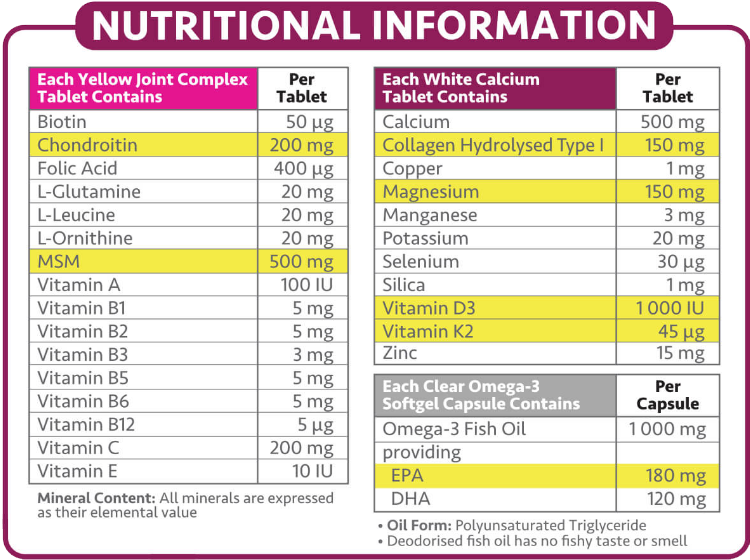
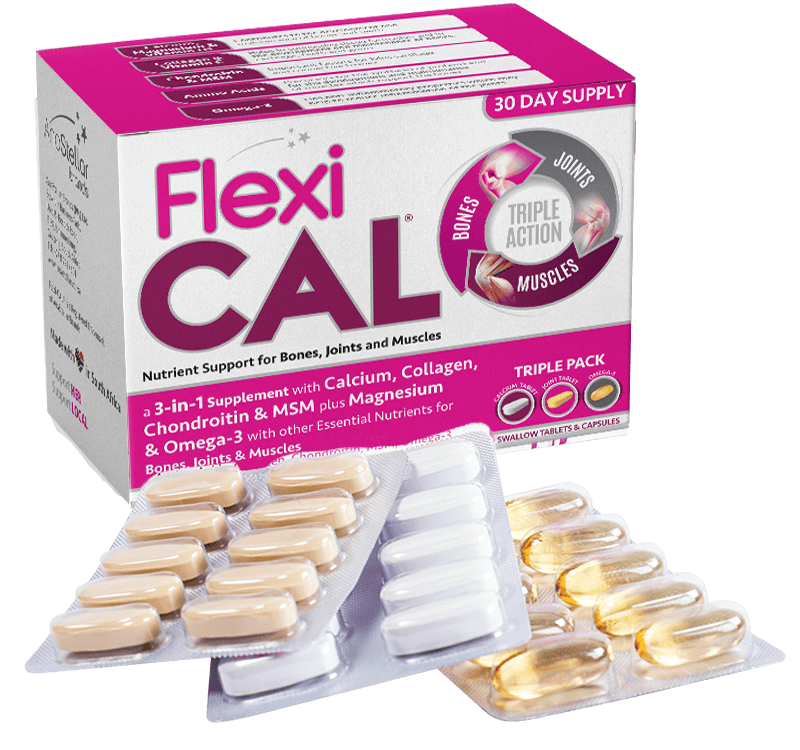
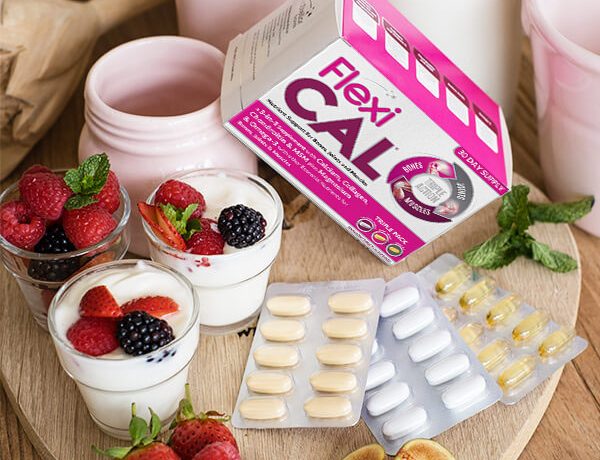
FerOvance
Anemia is common in the elderly and its prevalence increases with age. The prevalence of Anemia in the elderly has been found to range from 8 to 44%, with the highest prevalence in men 85 years and older. The most common causes of Anemia in the elderly are Iron Deficiency and chronic diseases. Vitamin B12 Deficiency, Folate Deficiency, gastrointestinal bleeding, and Myelodysplastic Syndrome are also some other causes of Anemia in the elderly.
Nutrients for the elderly to consider for Anemia are:
Iron, Vitamin B6, Vitamin B12 and Folate have crucial roles in Red Blood Cell Formation and their intake and absorption can be impacted by i) Changing life demands (e.g., work pressure, family life, pregnancy, and exercise), ii) Change of diets (e.g., becoming vegetarian or vegan) and iii) Our digestive system’s absorptive ability (e.g., Celiac Disease). Taking an Oral Iron Supplement with added Vitamin C has been shown to enhance Iron absorption, which is why it is often recommended that you take your Iron Supplement with a glass of orange juice. If the Iron Supplement you choose already has Vitamin C in it, then you can give the orange juice a miss!
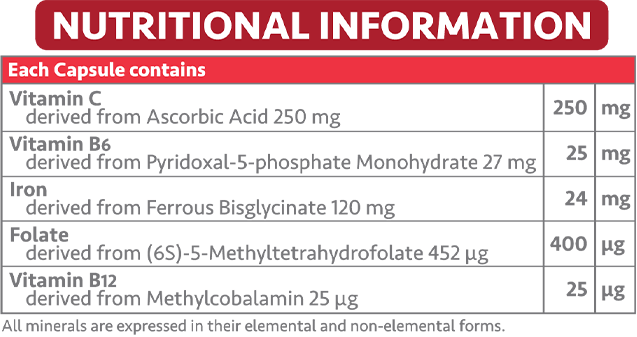
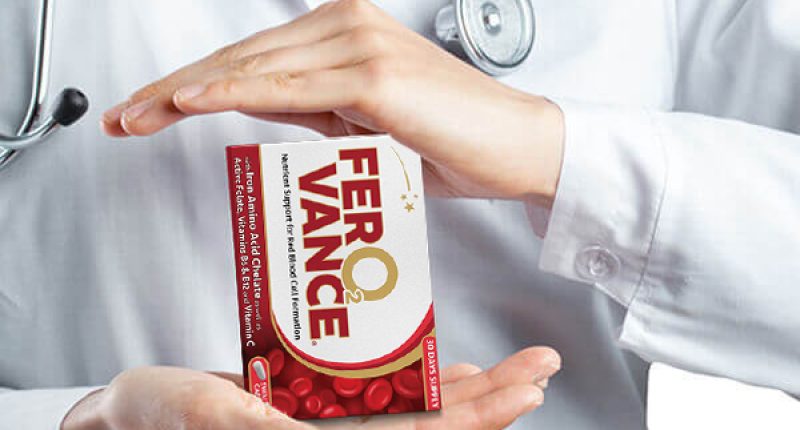
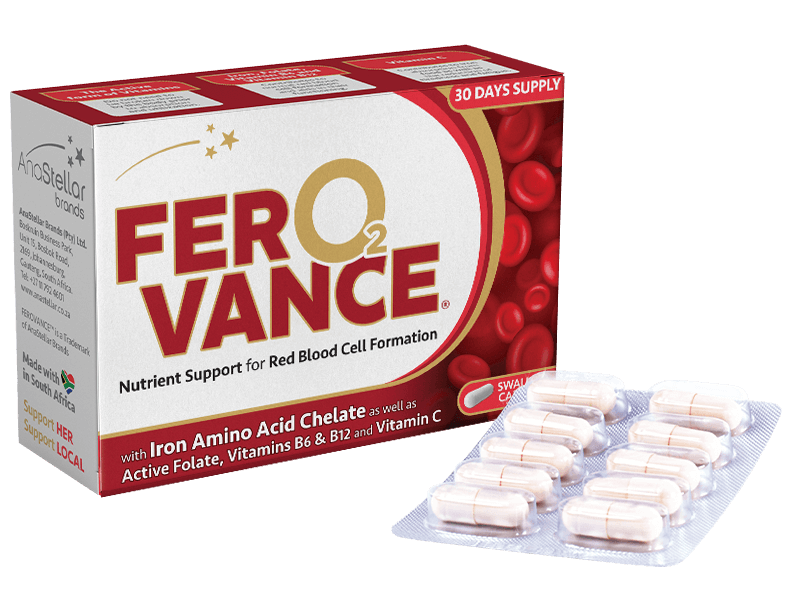

NeuroXCEL
People who take cholesterol-lowering Statin medication also have reduced levels of Coenzyme Q10 because Statin medication blocks the synthesis of Coenzyme Q10. Coenzyme Q10 supplementation can be used to manage Statin‐induced myopathy (muscle pain).
Nutrients for the elderly to consider for Cholesterol and Statin use:
- Coenzyme Q10
- Magnesium
- Vitamin D
Peripheral neuropathies are common in older people. Although the ageing process itself can play a part, there are multiple other causes. Peripheral neuropathy can be caused by axonal damage or demyelination, as well as damage to large or small fibres. The increased risk of falls, injury and disabling symptoms like pain are quite pronounced in the elderly.
Nutrients for the elderly to consider for Peripheral Neuropathy:
- Vitamin B1
- Vitamin B6
- Vitamin B12
- Folate
- Vitamin D
Vitamin B1 assists with the lowering of pain and inflammation levels and preventing cellular damage as well as aiding energy production.
Vitamin B6 helps to maintain the covering on nerve endings (Myelin Sheaths) and aids in Red Blood Cell production.
Vitamin B12 helps with the production of a substance called Myelin, which coats the nerve fibres.
Folate functions in numerous Central Nervous System Methylation reactions and influences mood, arousal, cognitive and social function.
Vitamin D3 assists as a natural anti-inflammatory and antioxidant, which increases Brain Health Support and decreases the risk of neurodegeneration.
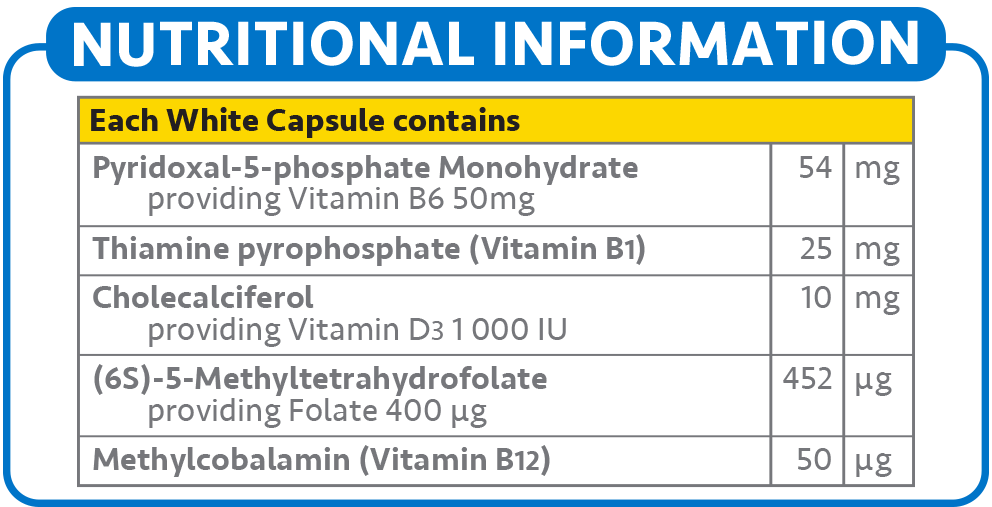
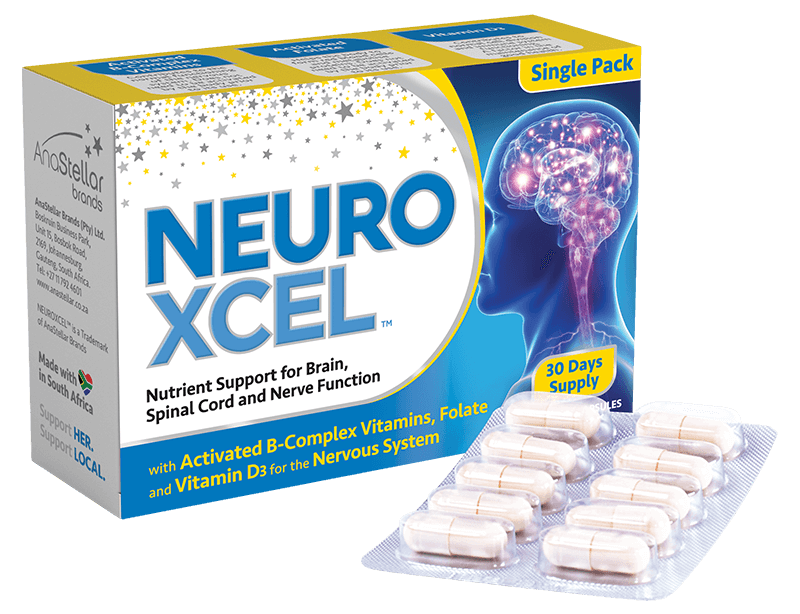
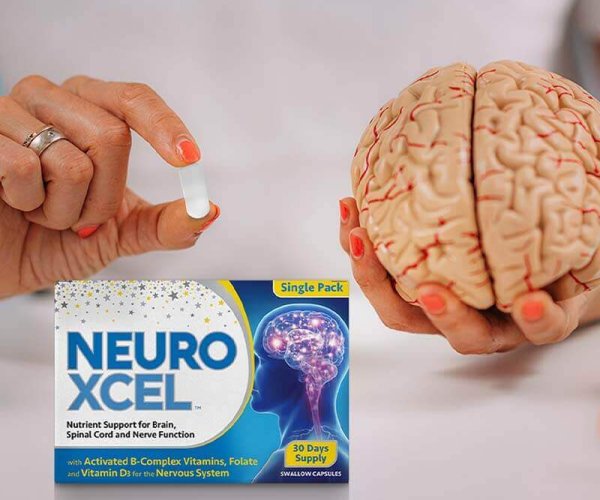
Taking additional vitamins and minerals when we get older is a convenient and easy way for us to supplement our diet with important nutrients to maintain our health. Most seniors can get a fair amount of their vitamin and mineral needs through food. But where there are gaps in the diet, that is where supplementation plays an important role. People will have different demands for certain vitamins and minerals depending on their baseline health. None of us can stop the natural ageing process, but we can make choices that improve our ability to maintain an active life, to do the things we enjoy, and to spend time with loved ones!
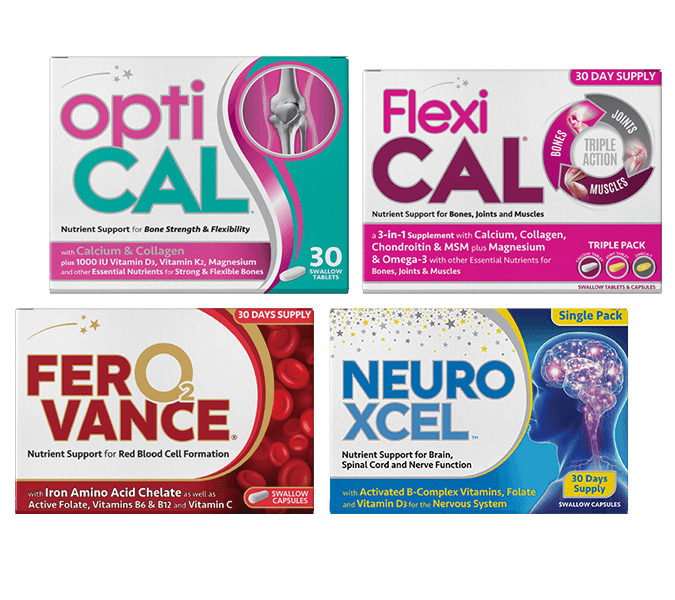
Frequently asked Questions
Seniors over age 70 may need more of some vitamins and minerals than younger adults because an older body can be less efficient at absorbing key nutrients from food. Before deciding to start taking a dietary supplement to treat any health condition, it is important that Seniors check with their doctor first. Usually taking Vitamin D3, B-Complex and a general multivitamin is a good place to start. Flexi-CAL is a convenient vitamin and mineral supplement that assists with Bone, Muscle and Joint Health.
Elderly people often require higher levels of certain vitamins and minerals to maintain their health because as we age our bodies become less efficient at producing, handling, and absorbing nutrients. The Elderly are also at a higher risk for developing certain diseases, and that risk can be increased by a lack of certain nutrients.
The following vitamins and minerals are needed by the elderly:
- Vitamin D3 is an important vitamin for bone health as it helps Calcium to be absorbed. It also plays an important role in maintaining strong muscles and healthy nervous and immune systems
- Calcium helps slow bone loss and protects against fractures and osteoporosis
- Vitamin B12 supports the body’s nerve and blood cells
- Vitamin B6 is involved in metabolism, transporting oxygen in red blood cells, and processes involved in mood, memory, and immunity
- Magnesium is involved in building muscles, bones, and nerves, and regulating blood sugar levels and blood pressure
- Omega-3’s assist in cardiovascular disease, dementia, and age-related eye diseases like Macular Degeneration
- Vitamin K2 helps Calcium stay in the bone by directing calcium out of the blood and soft tissue
Yes, if you are trying to conceive it is recommended that you start taking folate (folic acid) at least 2 to 3 months before trying to conceive. The World Health Organisation (WHO) recommends that all Women planning to fall Pregnant should start supplementing with Folate (Folic Acid) at least 2 to 3 months prior to conception and for the first trimester of Pregnancy.
It is also beneficial to start preparing your body for Pregnancy by taking a Pregnancy Vitamin that contains Iron, B-Complex Vitamins, Antioxidants, Calcium, Magnesium and Vitamin D in addition to Folate (Folic Acid).
Preggy-Mama is a Pregnancy Vitamin and Mineral Supplement that contains Vitamins and Minerals for preparing your body for conception.
Ideally, you should start taking pregnancy vitamins before conception (before even falling pregnant) especially Folate. The birth defects prevented by Folate (Folic Acid) happen within the first few weeks of pregnancy, before you even know you’re expecting.
The World Health Organisation (WHO) recommends that all Women planning to fall Pregnant should start supplementing with Folate (Folic Acid) at least 2 to 3 months prior to conception and for the first trimester of Pregnancy.
Preggy-Mama contains Folate and can be taken before you even fall Pregnant to prepare your body for Pregnancy.
Even if you eat a healthy diet, you may still need to take Pregnancy Vitamins, especially Folate (Folic Acid). The World Health Organisation (WHO) recommends that all Women planning to fall Pregnant should start supplementing with Folate (Folic Acid) at least 2 to 3 months prior to conception and for the first trimester of Pregnancy.
Your body’s nutritional demands increase during pregnancy. It takes a lot of vitamins and minerals to grow a full-term baby! Pregnancy vitamins help fill the gap in any missing nutrients (Vitamins and Minerals) you may have.
Preggy-Mama can help to fill the Vitamin and Minerals gaps that you may have during Pregnancy, that your diet may not provide.
Prenatal Vitamins are Pregnancy Supplements that contain a combination of Vitamins and Minerals that you will need before, during and after your Pregnancy. Folic Acid / Folate is the most important Vitamin to take when planning a pregnancy. However, there are many other Prenatal Vitamins that are also important in Pregnancy such as Iron, B-Complex Vitamins, Antioxidants, Calcium, Vitamin D and Magnesium.
Taking a Prenatal Vitamin such as Preggy-Mama will provide you with a comprehensive combination of Pregnancy Vitamins and Minerals.
Yes, it is recommended that you take Pregnancy Vitamins while breastfeeding for at least 6 to 12 months after giving birth. Breastfeeding is a nutritionally demanding period in a Woman’s life and thus supplementing Vitamins and Minerals that are lost through the Breastfeeding process is important.
Preggy-Mama can be used before, during and after Pregnancy and throughout the Breastfeeding process.
